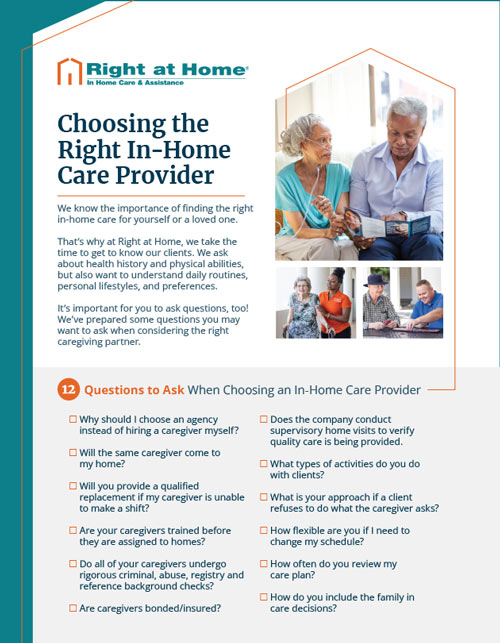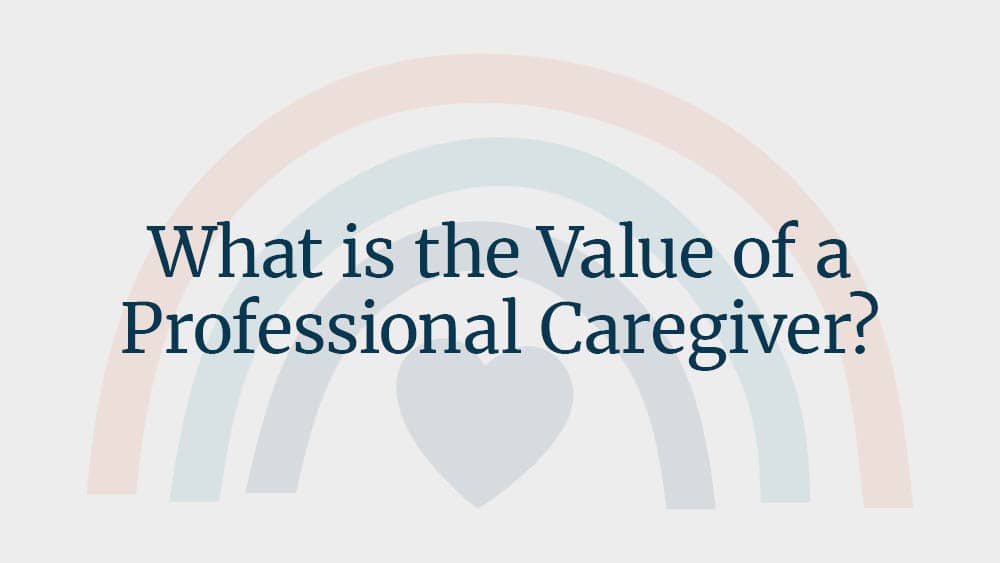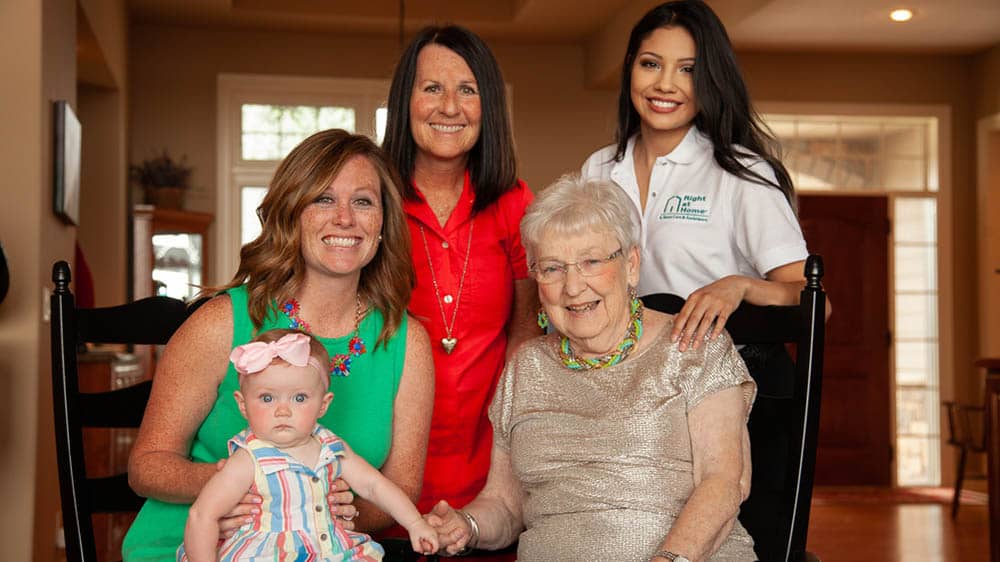

Choosing the Right In-Home Care Provider
Here Are 12 Important Questions To Ask!
Deciding to hire an in-home caregiver can be confusing, especially during a time of stress and high emotion. Most people start by asking friends, family, and co-workers for recommendations while also doing online research to understand their options. It is important also to ask the right questions when talking to those being considered, as there are significant financial, legal, and safety ramifications to weigh. But what questions should a person ask to ensure an older loved one gets the care they deserve?
The Risks: Hiring an Agency, Independent Caregiver, or Registry
When it comes to hiring an in-home caregiver, most people choose one of these three routes: (1) hire an agency that employs the caregiver and takes care of all of the paperwork, taxes, insurance, and training; (2) hire an individual directly—in much the same way one would find a babysitter; or (3) go through a caregiver registry.
- Independent caregiver: Perhaps you’ve heard about someone who lives nearby and might be looking to earn some extra income with in-home caregiving. If you are considering this route, there are several things you should think about. First, while paying them in cash might be easy, this arrangement often overlooks formal employment requirements such as tax withholdings and Social Security contributions, potentially leading to legal issues for the care recipient or their family. Furthermore, independent caregivers typically lack workers’ compensation and liability insurance, which can pose significant risks. Finally, one can certainly ask for references and talk to them, but background checks are also important.
- Registry: Using a registry to find a caregiver offers some conveniences but carries similar risks. Registries usually operate by simply connecting caregivers with families without providing employment or training to the caregivers. This often means there is little oversight of the caregiver’s actions. Background checks may not be uniformly conducted, leaving a gap in the safety measures that protect vulnerable seniors.
In both scenarios above, the lack of professional oversight and the informal nature of employment can create vulnerabilities (both legal and financial) for the caregiver, the care recipient, and the homeowner (if that is not the care recipient). This includes the potential for injuries, substandard care, or even elder abuse. These factors make it essential for anyone considering hiring a caregiver independently or through a registry to weigh the risks and responsibilities involved thoroughly.
- Using an agency: Using a reputable agency to provide care for an aging loved one can take away much of the work and worry. In this scenario, the agency directly employs the caregiver, ensures the required taxes and insurance are in place, and offers accountability and oversight to ensure the older loved one is safe. Here are some additional details that compare working with a home care agency vs. working directly with an individual or hiring through a registry:
| Agency-Hired Aide | Independent/Registry Aide | |
| Screening & Background Checks | Home care agencies typically conduct thorough screenings, including background checks, certifications, and reference verifications. | Consumers must often conduct their own screenings and background checks or rely on the registry's process, which can vary in thoroughness. |
| Training & Qualifications | Agencies usually provide training for their aides and ensure they meet specific qualifications and certifications. | Training and qualifications can vary widely, and it is often up to the consumer to verify the aide’s training and credentials. |
| Liability Insurance | Home care agencies generally provide liability insurance to cover accidents or negligence. | Independent aides may or may not have their own insurance; the consumer might need to cover this. |
| Employment Taxes & Payroll | These are handled by the agency, which simplifies the process for consumers. | The consumer may need to manage payroll and taxes, considering the aide as a household employee. |
| Substitution & Coverage | Home care agencies can provide substitute caregivers if the regular aide is unavailable. | Typically, there is no backup; if the aide is unavailable, the consumer must find a replacement. |
| Accountability & Oversight | Agencies have structured oversight and accountability measures for their staff. | There is less formal oversight; the consumer often assumes the role of managing and supervising the aide. |
| Cost | It may be higher due to agency overhead, training, and insurance costs. | It can be lower but comes with added responsibilities for managing and potentially insuring the aide. |
Whatever your choice, you should first talk to several options before deciding. The need for in-home caregiving may be urgent, but it’s worth your time to make a decision that works for everyone. Here are some questions you can use when interviewing candidates.
12 Questions To Ask When Choosing an In-Home Care Provider
- Why should I choose your company instead of just hiring a caregiver myself?
- Will the same caregiver come to the home each time? (This is important if you prefer consistency and familiarity.)
- Will you provide a qualified replacement if the regular caregiver is unable to make a shift?
- Are your caregivers trained before they are assigned to homes?
- Do all of your caregivers undergo rigorous criminal, abuse registry, and reference background checks?
- Are your caregivers bonded/insured?
- Does your company conduct supervisory home visits to verify quality care is being provided?
- What types of activities do you do with care recipients?
- What is your approach if a care recipient refuses to do what the caregiver asks?
- How flexible are you if I need to change the schedule?
- How often do you review the care recipient’s care plan?
- How do you include the family in care decisions?
How Right at Home Can Help
Right at Home’s trained and insured/bonded caregivers are passionate about helping aging adults live independently, no matter where they call home. To find out more, use our office locator to speak to a local office that can help you navigate the aging journey. You can also download a copy of the 12 Questions To Ask When Choosing an In-Home Care Provider flyer to help you with the journey.
Interested in receiving ongoing tips, information, and advice delivered directly to your email inbox every month? Subscribe to our Caring Right at Home e-newsletter today!








